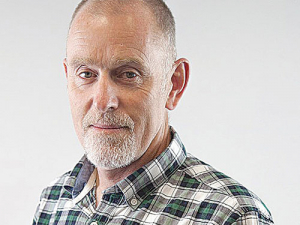2024/25 Dairy Statistics: NZ dairy farmers boost production with fewer cows
According to the New Zealand Dairy Statistics 2024/25 report, New Zealand dairy farmers are achieving more with fewer cows.
 The model Bevin Harris and his team developed is perhaps the greatest step forward in animal evaluation since Breeding Worth was introduced in 1996.
The model Bevin Harris and his team developed is perhaps the greatest step forward in animal evaluation since Breeding Worth was introduced in 1996.
LIC Science Leader Bevin Harris has been recognised for his pioneering work in animal evaluation.
Harris was a finalist for the Primary Industries Science & Research Award for his achievement in developing an enhanced animal evaluation model which combines an animal's ancestry, performance data and DNA information all in one step to more accurately estimate its genetic merit and value to the dairy industry.
LIC chief scientist Richard Spelman says utilising genomics (DNA information) in animal evaluation is estimated to be worth $180 million annually to the New Zealand industry as it enables elite young bulls to be used for artificial breeding, effectively fast-tracking genetic gain.
"The purpoose of genomics in animal evaluation is to predict the future. Rather than waiting for performance data from a bull's daughters to come through, genomic evaluation utilises a young bull's DNA and ancestry to predict it so we know as early as possible whether a bull has the genetic merit to sire the next generation of sustainable and efficient dairy cows for New Zealand.
"The model Bevin and his team developed is perhaps the greatest step forward in animal evaluation since Breeding Worth was introduced in 1996."
Spelman says the single step animal model was implemented in February 2020 after thorough validation showed it increased the accuracy of genomic predictions.
"Validation of the model has shown it produces genomic breeding values that are more aligned to daughter proven breeding values than ever before.
"This improved accuracy has not only given us confidence to use genomics more extensively in our breeding programme but also provides farmers with reassurance that their investment in genomics will deliver returns to their farming practice through increased productivity and efficiency."
Internationally, genomics is widely used for animal evaluation, however Spelman says New Zealand crossbred dairy herd required Harris to undertake years of complex research to develop a genomics evaluation model with the accuracy it has today.
"Bevin's work has been outstanding as he navigated the intricacies of New Zealand's largely crossbred cow population to generate a model that can accurately evaluate dairy bulls and cows using genomic and phenotypic information simultaneously. Bevin has worked at LIC for over 30 years where his extensive research into the application of animal evaluation and world-leading statistical methods has single-handedly improved the efficiency and productivity of the New Zealand dairy herd.
"Being a finalist in the Primary Industries Awards is fantastic recognition of the critical work Bevin and his fellow scientists are doing behind the scenes to help farmers breed more sustainable and efficient cows."
Legal controls on the movement of fruits and vegetables are now in place in Auckland’s Mt Roskill suburb, says Biosecurity New Zealand Commissioner North Mike Inglis.
Arable growers worried that some weeds in their crops may have developed herbicide resistance can now get the suspected plants tested for free.
Fruit growers and exporters are worried following the discovery of a male Queensland fruit fly in Auckland this week.
Dairy prices have jumped in the overnight Global Dairy Trade (GDT) auction, breaking a five-month negative streak.
Alliance Group chief executive Willie Wiese is leaving the company after three years in the role.
A booklet produced in 2025 by the Rotoiti 15 trust, Department of Conservation and Scion – now part of the Bioeconomy Science Institute – aims to help people identify insect pests and diseases.
President Donald Trump’s decision to impose tariffs on imports into the US is doing good things for global trade, according…
Seen a giant cheese roll rolling along Southland’s roads?